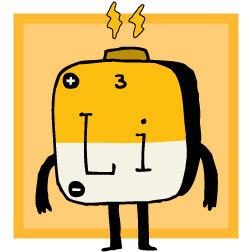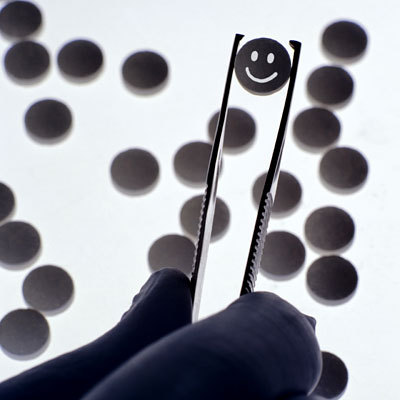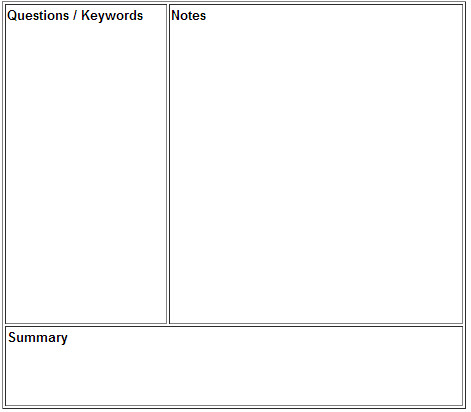Note
What does it take to major in this field?
Hi! There are a couple of paths that a person can take to major in nursing.
There are two different types of nursing: LVN (License Vocational Nurse) or RN (Registered Nurse).
Both have to take the NCLEX (board exam), but it's slightly different. RNs can do assessment and teaching on patients, but LVNs can only take care of patients with stable, predictable outcomes (hint: this is on the NCLEX!). Both can administer medications, but there are specific things that an LVN can and cannot do.
I believe you can get your LVN license from training schools. I am not very sure where, since I never got one, and I don't have any friends who are LVNs...
Well, as for RNs, you can choose one of the two paths: ADN or BSN.
I'm mainly going to focus on BSN, because that's the degree I received.
ADN is the degree that you can get in a community college, and BSN you can get in a 4-year college, aka "bachelor's degree" (but is usually more expensive). I would recommend getting your BSN, because a lot of the hospitals now are becoming Magnet hospitals, which require more and more nurses to have their degree in BSN; some hospitals even stopped hiring new grads with their ADN.
For either BSN or ADN, you can apply when the school's registration opens, and the times are different for every school. So make sure you check on their website or call their registrar office.
If you already started a 4-year college and is not currently majoring in nursing, you can still apply; but be sure that you met the major's prerequisites. Our school had a really low admitting percentage for transfers, but that's really because most of the applicants did not meet the prereqs.
Also, some schools (like mine) even opened up another application process for those who already graduated with a degree (mostly in Biology, or Health Sciences). So if you have already graduated from a college, make sure to check back for any news.
In general, no matter which path you choose, I'm sure a lot of nursing students, new grads, and nurses will agree with me on the following.
Nursing school takes a lot of time, socializing, dedication, determination, energy, money, gas, and maybe for some, tears (I'm just going to admit it, I did cry a couple of times). The classes are very dense, filled with so much information, that you might wonder, "How am I going to remember all of this?"
But in the end, I think if people are truly passionate about this career, they would find it all worth it. I guess I can say: no pain no gain.
Picture taken from Nursing Memes on Tumblr.
24 notes
·
View notes
Text
Anti-diabetic Agents
Use
Type II DM (ONLY)

Action
stimulates insulin release from the beta-cells in the pancreas
In case you want a detailed mechanism of action, then here it is!

Examples
Diabinese
Drinas
Dymelor
Micronase
To be honest, throughout all my rotations in various hospitals, I still haven't encountered a patient taking one of these agents.

Side effects
hypoglycemia (AGAIN!)
allergic skin reactions
GI disturbances/upset

Nursing considerations
take before breakfast (tell patient to eat afterwards)
monitor glucose levels (normal = 70 - 110 mg/dL)
avoid alcohol
be careful when taking with aspirin, sulfonamides, oral contraceptives, and MAOIs (increase the chance of hypoglycemic reactions)

#nursing#nursing student#student nurse#nursing school#nursing notes#rn#nurse#nclex#nclex-rn#diabetes#diabetic
25 notes
·
View notes
Text
Anti-diabetics: Insulin
Insulin is used in both Type I and Type II Diabetes Mellisuts (will go over these in future posts); but they act differently in each disease.
In Type I DM, the pancreas does not produce insulin at all, so these patients REQUIRE insulin.
In Type II DM, the pancreas does produce insulin; but the insulin augments the production of it.

When taking the NCLEX-RN/PN, or being a nurse, it is important for us to know the onset, peak, and duration of the various types of insulin.
This is really important because one of the major side effects/complications of insulin is hypoglycemia.
And by knowing the onset, peak, and duration, nurses can monitor for symptoms (or even predict) of hypoglycemia.
The peak usually indicates around what time the signs/symptoms (s/sx) of hypoglycemia will occur.

Action
reduces blood glucose levels by increasing the transportation of insulin across cell membranes
enhances the conversion of glucose to glycogen
Glucose is secreted by the liver into the bloodstream in order to main a constant level of blood sugar. The liver, muscle, and other tissues store glucose as glycogen.

[FAST-ACTING INSULIN]
Example: regular insulin (IV or pump), humulin R
Onset: 0.5 - 1 hour
Peak: 2 - 4 hours
Duration: 6 - 8 hours
The peak is 2 - 4 hours. This indicates that the s/sx of hypoglycemia will occur 2 - 4 hours after administering this insulin.

[INTERMEDIATE-ACTING INSULIN]
Example: NPH, humulin N
Onset: 2 hours
Peak: 6 - 12 hours
Duration: 18 - 26 hours
Sometimes the reaction and peak time might show early in the evening if the insulin was given in the morning.

[SLOW-ACTING INSULIN]
Example: Ultralente, humulin U
Onset: 4 hours
Peak: 8 - 20 hours
Duration: 24 - 36 hours
If this insulin is given today in the morning, s/sx of hypoglycemia will likely be seen around late evening of today or early morning of tomorrow.

[COMBINE INSULIN]
Example: Humulin 70/30
This insulin is already pre-mixed, so the patient doesn't have to mix two insulins together before administration.
Onset: 0.5 hour
Peak: 2 - 12 hours
Duration: 24 hours

Side effects
HYPOGLYCEMIA

Nursing considerations
Know the onsets, peaks, and durations of each insulin
monitor blood glucose levels (long-term and short-term)
* long-term: glycosylated hemoglobin A1c
* short-term: AccuCheck ("finger-sticks")

#nursing#nursing student#student nurse#nursing school#nursing notes#rn#nurse#nclex#nclex-rn#insulin#diabetes#diabetic
54 notes
·
View notes
Text
Bipolar Disorder: Lithium, Tegretol, Depakote
Uses
manic episodes
Since bipolar has two phases - manic and depressive. These meds aim to calm the patient down during mania.

Action
reduces catecholamine receptors
Catecholamines are hormones. They are produced by the adrenal glands. These hormones control emotional and physical stress.

[LITHIUM]

control manic phase - need to assess patient first to see if they are depressive or manic at the moment
small therapeutic range - blood draw every 2 - 3 weeks, and let MD adjust dosage
encourage fluids - remember that lithium is a salt, acts like sodium
evaluate patient every 1 - 2 weeks - again, to see if they need adjustment of dosages

[TEGRETOL & DEPAKOTE]
stabilizes mood
dosages are not changed - different than lithium
pay attention to liver and kidney functions - lab tests: AST, ALT, BUN
given over time

General Side effects
GI distress/upset
tremors
polydipsia & polyuria - remember we need to encourage fluids for lithium, and watch for kidney function in tegretol and depakote

Nursing considerations
monitor serum levels for Lithium - just like how we measure all the other electrolytes
take with food - to avoid GI distress (esp. with depakote and tegretol)
increase fluid intake (3000 mL/day) - esp. with lithium

#nursing student#student nurse#nursing notes#notes#nursing school#rn#nurse#registered nurse#bipolar#lithium#tegretol#depakote#meds#medicine#medication#nclex#nclex-rn
15 notes
·
View notes
Text
Antidepressant: Heterocyclics

The way I remember this group, is that these meds DO NOT BELONG to the other groups - as in, they are uniquely unique!

Uses
depression
smoking cessation

Action
alter (but may not inhibit) serotonin reuptake in CNS

Examples
Wellbutrin (bupropion)
Desyrel (Trazadone)

Side effects
These 2 meds are in the same group, but have completely opposite side effects!
Wellbutrin - hyperresponse
* agitation
* insomnia
Desyrel - hyporesponse
* sedation

Nursing considerations
do not take with alcohol and CNS depressants (whatsoever)
wean off in a timely manner


#nursing#nurse#rn#nursing school#nursing student#student nurse#nursing notes#notes#nclex#nclex-rn#med#medication#meds#medicine
14 notes
·
View notes
Text
Antidepressant: Tricyclics

Uses
depression
sleep apnea

Action
inhibits reuptake of neurotransmitters (ring a bell? action same as MAO inhibitors!)

Examples
Elavil
Tofranil
Norpramin

Side effects
sedation
anticholinergic effects (this again!)
confusion
postural hypotension
The way I remember this:
"Tri"cyclics = "tri"-effect for anticholinergic effects (dry mouth, urinary retention, blurry vision)


Nursing considerations
suicide precautions (peaks at 2 - 3 weeks)
takes 2 - 6 weeks for antidepressant effects
take during the night
monitor VS
wean off slowly
do not take with alcohol
do not take with sleep inducers (these also have sedative effects)
avoid sun exposure; or use sunscreen

#nursing#nurse#rn#nursing school#nursing student#student nurse#nursing notes#nclex#nclex-rn#meds#medication#medicine#antidepressant#tricyclic antidepressant
15 notes
·
View notes
Text
Antidepressant: Selective Serotonin Reuptake Inhibitors (SSRIs)

Uses
depression
OCD
bulimia

Action
inhibits CNS reuptake of serotonin (as implied by the name of this subcategory of antidepressants)

Examples

The frequently used ones are:
Prozac
Paxil
Zoloft

Side effects
anxiety
GI upset
change in appetite
change in bowel function
urinary retention
pink urine

Nursing considerations
suicide precautions
* greatest risk is around 2 - 3 weeks (pt has a lot of energy)
* the only time when you can ask yes/no questions
takes around 4 weeks for antidepressant effects
take in the morning

#nursing#rn#nurse#nursing school#nursing student#student nurse#meds#medication#medicine#antidepressant#SSRI
9 notes
·
View notes
Text
Antidepressant: Monoamine Oxidase (MAO) Inhibitors

Uses
depression
chronic pain

Action
increases concentration of neurotransmitters

Examples
Nardil (phenelzine)
Parnate (tranylcypromine)
Marplan (isocarboxazid)

Side effects
hypertensive crisis when combined with tyramine-containing foods
* severe headaches
* palpitations
* diaphoresis (excessive sweating)
* stiff neck
* intracranial hemorrhage
photosensitivity

Nursing considerations
avoid tyramine-foods
* aged-cheese
* bologna, pepperoni, salami
* bananas
* raisins, yogurt
* beer/wine
* liver
* pickled products
monitor urine output
takes 4 weeks to work
do not combine with other CNS depressants or cold meds

#nursing#nurse#rn#nursing school#student nurse#nursing student#nursing notes#notes#nclex#nclex-rn#meds#medicine#medication#antidepressant#MAO
11 notes
·
View notes
Text
Antidepressants
The main use for antidepressants are, of course, depression.
Just like antibiotics, antidepressants also have subcategories:
Monoamine oxidase (MAO) Inhibitors
Selective Serotonin Reuptake Inhibitors (SSRIs)
Tricyclics
Heterocyclics

To tell you the truth, there is no easy way to remember these subcategories. But you can start by looking at their mechanisms of action. The side effects are also really unique to each subcategory.

The following are key points that you MUST know about antidepressants:
some take a couple of weeks for its full effects
do not combine antidepressants with alcohol (alcohol is also a CNS depressant)
suicide precautions - there is this period of time when the depressed patient shows a sudden surge/increase of energy, this is the critical time when the patient might be highly suicidal
some antidepressants should be weaned off slowly

#nursing#rn#nurse#nursing school#nursing student#student nurse#nursing notes#nclex#nclex-rn#meds#medicine#medication#antidepressant#depression#alcohol
15 notes
·
View notes
Text
Antacids

Uses
peptic ulcers
indigestion
reflex esophagitis
In a related subject, one of my friends take antacids before drinking alcohol, otherwise her face will become very red - a phenomenon we like to call "Asian Glow".


Action
neutralizes gastric acids

Examples
Amphojel (aluminum hydroxide)
Milk of Magnesia (Magnesium hydroxide) - don't really need prescription; I've seen it in dollar stores
Maalox
Both Milk of Magnesia and Maalox are common in the med/surg units.

Side effects
constipation and diarrhea (both extremes can happen because we're dealing with the GI system)
acid rebound

Nursing considerations
interferes with the absorption of meds (antibiotics, iron preps, oral contraceptives, and INH)
do not combine with other meds - give 1-2 hours after eating a meal or taking other meds
monitor bowel function - may have "bowel addiction"
monitor signs and symptoms of lab shifting (we're dealing with Magnesium, "Mag's a drag") - monitor electrolytes

#nursing student#student nurse#nurse#rn#nursing school#nursing notes#notes#nursing#antacid#pepcid#asian glow#asians#medicine#meds#medications#milk of magnesia#maalox#nclex#nclex-rn
11 notes
·
View notes
Text
Anti-anxiety Agents
Uses
anxiety
anxiety disorders
manic episodes (of bipolar disorder)
panic attacks

Action
affect neurotransmitters in the brain

Examples:
Benzodiazepines (usually end in PAM)
Librium (chlordiazepoxide)
Xanax (alprazolam)
Ativan (Lorazepam)
Valium (Diazepam) - frequently used to keep patients sedated at a specific level
Non-Benzodiazepines
Equaril
Buspar
Vistaril (hydroxyzine)
Herbals
Melatonin
Kava

Side effects
CNS depression (too calm) - causes sedation and confusion
hepatic dysfunction

Nursing considerations
potential for addiction or overdose (watch for additive issues and potential suicidal tendencies)

avoid alcohol (alcohol is also a CNS depressant)
monitor liver functions (LST, ALT, LDH)
gradually wean off
decreases effectiveness if smoking or caffeine use

#nursing#nurse#rn#nursing student#student nurse#nursing school#nursing notes#notes#meds#medicine#medication#anxiety#neurotransmitter#benzodiazepine
10 notes
·
View notes
Text
NOTE-TAKING TIPS

I have always struggled with note-taking ever since I had to take notes. I've been through so many types of note-taking and I still don't know which one's the best for me. Below is a compiled list of note-taking, and links that will help you with note-taking. Hope this helps.

[MATERIALS]
Binder + binder paper
Binder paper is easy for organizing your notes. I personally like the college-ruled more, because I can write more info on one page.
Deals can usually be found in dollar stores at all times.
Notebooks
People who don't like binder paper (like me!) can use notebooks.
Notebooks is more light-weight compared to binders. I just never liked the idea of my binder being uneven when I shove them in my bookshelf.
If you are in a hospital during rotations/preceptorships, use smaller notebooks (easier to carry and to find notes).
Blank pieces of paper
This is super useful when you have to draw out something. And you can organize your notes by blocks, circles, or whatever you like.
Flash cards
Flash cards are useful when you want to remember something short. These worked for me when I had to study for medical terminology or medications.
After using paper flash cards throughout my entire high school, I switched to online flash cards durign college.
FREE sites for online flash cards
* StudyBlue (can download phone app)
* Quizlet (can search for others' flashcards)
* Cram
* BrainFlips
My favorite one so far is StudyBlue, because it looks fancy! (:
Highlighters and colored-pens
Since I kill highlighters pretty fast, I buy them at dollar stores. A pretty-nice brand usually comes with 4 different colored highlighters. My favorite colored-pens are the Japanese brand "uni-ball Signo DX". You can use them to color-code. I think the most important thing for me when I color-code is being consistent, so my brain would recognize the themes faster. I use pink for super important stuff (like unique side effects and nursing considerations). But you are the king/queen of your notes, choose your colors!
Sticky notes
I usually find these deals in Big Lots, Walmart, and sometimes even dollar stores. I use them when I want to remember something SUPER important. Or when I need to insert a note.
Computer programs
I use a PC, so I don't know if MACs have same or similar programs.
* Microsoft Word
* Microsoft One Note (can create a "notebook" and have sections)
* Notepad

[GOOD NOTE-TAKING SKILLS - according to a lot of online sources]
Don't write down everything you hear or read
(This actually doesn't work for me :( I use bullet points, but I almost write in complete sentences. Otherwise I'll forget why I shortened my sentence...)
Structure and organize your notes
* start a new section or lecture in a new page
* use abbreviations (use your nursing terms!)
- GLOBALRPh (Clinician's Ultimate Reference)
- Cuesta College's RN Abbreviations
Compare notes with your buddy, your roommate, your classmate, or online!
I found that Quizlet has a lot of notes on nursing lectures. Try it!
Things you must write down
* definitions (I try not to use phrases for definitions)
* medical terms (important when charting)
* examples (helps association things together; creates a map)
Write legibly
My friends who fell asleep in class (shh) started taking notes subconsciously - not a good idea; he couldn't understand what he was writing. So I guess another lesson here is: don't fall asleep during class!
Review regularly
I guess the key point here is try not to procrastinate when reviewing your notes. I used to do this a lot in nursing school - definitely not a good idea.
Here are a couple of suggestions from online resources on reviewing notes regularly:
* right after lecture
* do not review the night before your exam (or your NCLEX!)
* rewrite important key points
* have a buddy and quiz each other

[THE CORNELL NOTE-TAKING SYSTEM]

Of course, you don't have to follow this format completely. You can add your own taste and style to it.

I have complied these note-taking-related points from various internet sources. Please feel free to use them. They may help you a lot, or they may totally not work on you. Just remember to find the best way for you to study.
If you are a solo-studier, study by yourself. If you like hanging out with people, study in a group. But evaluate the effectiveness (like we do in the real nursing world, always evaluating the effectiveness of our treatments and therapies) of your studying time - are you actual studying? or did you end up talking to your friends?
I know some people like listening to music while studying. But think about if music actually helps you focus, or does it drift your concentration away? I like listening to instrumental music (piano, jazz...), otherwise I'll start singing along if the song has lyrics; and that's not very helpful.
NOW...


#nursing#nursing student#rn#student nurse#nursing school#nursing notes#notes#note-taking#taking notes#avengers#iron man#thor#captain america#hulk
89 notes
·
View notes
Text
Antidysrhythmics
Uses
Atrial fibrillation (Afib)
Atrial flutter (A-Flutter)
Tachycardia
Premature ventricular contraction (PVCs)
I will cover EKG strips in another post. So hang on! :)

Action
interferes with the heart's electrical excitability
Think of it as you have a patient whose heart is pumping "weird", so you are trying to use an antidysrhythmic to slow down the heart and prevent it from getting too excited.

Examples
atropine sulfate
Lidocaine
Quinidine
Isuprel (isoproterenol)
Pronestyl (procainamide)

Side effects
lightheadedness
bradycardia and hypotension (the other extreme of heart issues; since we tried to calm it, now it's too calm, oh no!)
urinary retention
may cause bronchospasm if using beta-blockers (the LOLs)

Nursing considerations
monitor VS (especially BP and P - don't want the patient to go into hypotension and bradycardia)
monitor EKG (want to make sure patient gets out of the Vfib or Flutter they were in)
position patient slowly to avoid orthostatic hypotension

#nursing student#student nurse#nursing school#nurse#rn#nclex#nclex-rn#antidysrhythmic#heart#EKG#ECG#meds#medicine#medication#nursing notes
16 notes
·
View notes
Text
Adrenergics
Uses
COPD (lungs)
cardiac arrest (heart)

Action
stimulates beta-2-receptors in the lungs
increases peripheral resistance and causes bronchospasm

Examples
Levophed (norepinephrine)
Adrenalin (epinephrine)
Intropin (dopamin)
Dobutrex (dobutamine)
All of these meds were pretty common when I was rotating through the ICUs. Even though the patient might not need them, you mostly likely will see one of these sitting in the patient's chart just in case.


Side effects
dysrhythmias (heart)
tremors
anticholinergic effects (esp. dry mouth and urinary retention)

Nursing considerations
monitor BP and peripheral pulses (since it's targeting the heart)
monitor urine output (one of the anticholinergic effects)
provide safety during ambulation (patient can fall)
instruct patient not to drive


#nursing student#student nurse#nclex-rn#rn#nclex#adrenergic#heart#medicine#medication#meds#anticholinergic#anticholinergic effects#COPD#cardiac arrest#epinephrine#norepinephrine
20 notes
·
View notes
Text
GI: Antiemetics
Uses
vomiting

Action
increases GI motility
blocks effect of dopamine in chemoreceptor trigger zone

Examples (italics are common meds)
Tigan
Reglan
Antivert
Compazine

Side effects
sedation
anticholinergic effects

Nursing considerations
commonly used before initiating chemo therapy
may cause Reye's syndrome if patient has a viral infection :(

#GI#antiemetic#vomiting#nursing#nurse#rn#nursing student#student nurse#nursing school#nursing notes#notes#medical notes#medication#med#medicine#reglan#chemo therapy#chemo#Reye's syndrome
7 notes
·
View notes
Text
GI: Antidiarrheals
Use
diarrhea

Action
slows peristalsis
increases tone of sphincters (in the GI system)

Examples
Kaopectate
Lomotil
Imodium
Paregoric

Side effects
constipation (wanted to stop diarrhea, but now the med has completely stopped bowel movements :O)
dizziness
drowsiness
anticholinergic effects (dry mouth, blurry vision, urinary retention...)

Nursing considerations
do not use if patient has abdominal pain (do not want to stimulate peristalsis or use of sphincters, because it might make the pain worse)
monitor for urinary retention (anticholinergic effect)
do not combine with other meds - take it alone

#antidiarrheal#diarrhea#poop#GI#nursing#nurse#rn#nursing student#student nurse#nursing notes#nursing school#nclex#nclex-rn#medication#medicine#med#meds#anticholinergic#constipation
6 notes
·
View notes
Text
Anticonvulsants
Uses
seizures (convulsions)

Action
decreases the flow of Calcium and Sodium ions across the neuronal membranes

Examples (italics are the more common ones you'll see)
Dilantin (phenytoin)
Depakote (divalproex sodium)
Tegretol (carbamazepine)
Konopin (clonazapam)
Lumino (Phenobarbital)

Side effects
respiratory depression
aplastic anemia
gingival hypertrophy
ataxia (aka uncoordinated movements)

Nursing considerations
do not discontinue anticonvulsants abruptly
monitor I&Os
careful when using medications that lower seizure threshold (ex: MAOIs, antipsychotics)
take with food
provide oral care - be gently
avoid alcohol (may cause severe respiratory depression)
urine may become pink - let patient be aware of this (we don't want them freak out when they go to the bathroom)

[DILANTIN]
IV can cause cardiac arrest if too quickly - monitor HR
urine turns pink
do not combine with other meds - should be given through its own port

[MAGNESIUM SULFATE]
this is a common med in OBGYN
observe and evaluate for deep tendon reflexes (DTRs)
monitor for respiration depression

[DEPAKOTE]
do not take with carbonated drinks (sodas)

#anticonvulsant#dilantin#depakote#tegretol#phenobarbital#nursing#rn#nurse#nursing student#student nurse#nursing school#nursing notes#nclex#nclex-rn#seizure#alcohol#respiratory depression#medication#med#OB#sodas
11 notes
·
View notes